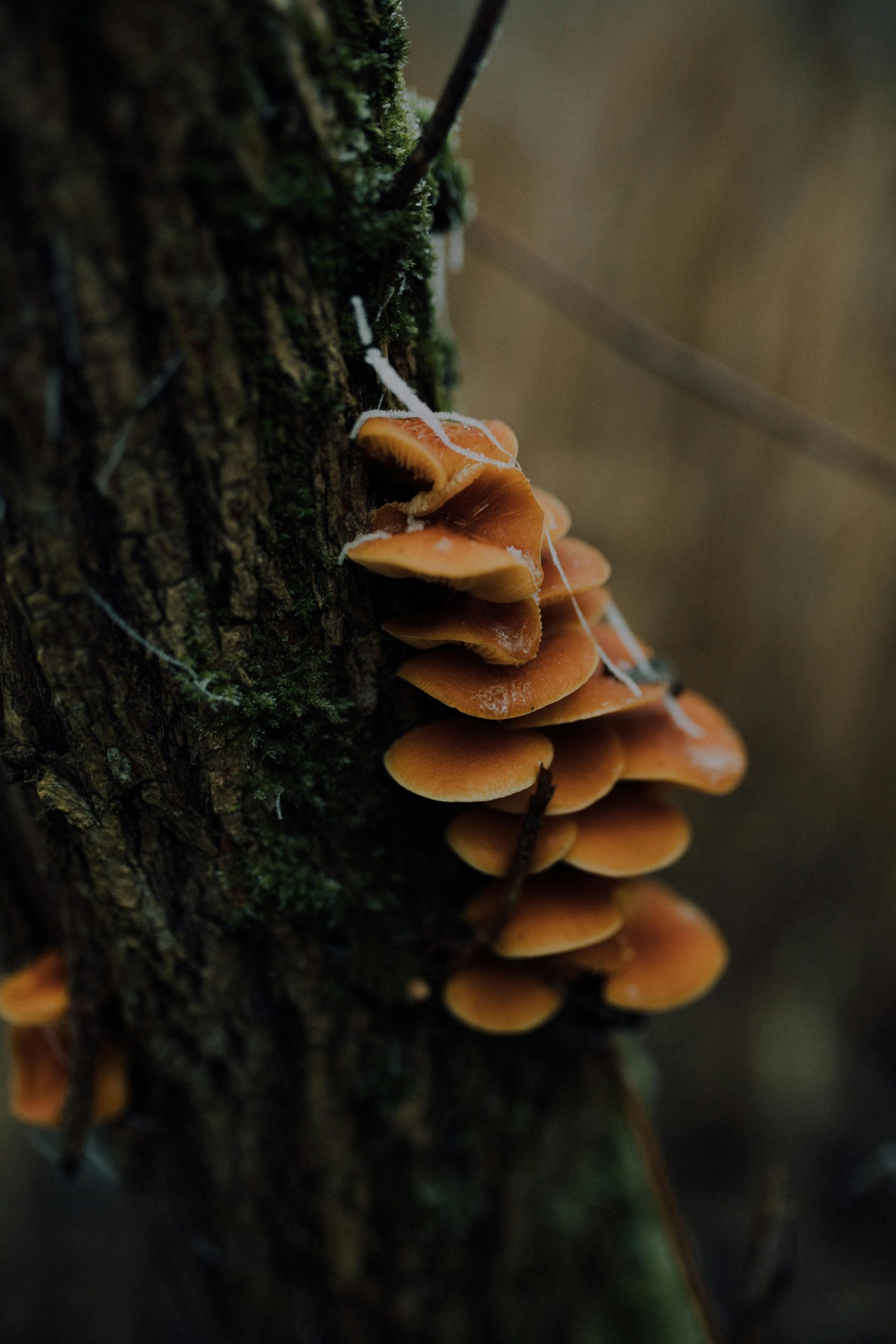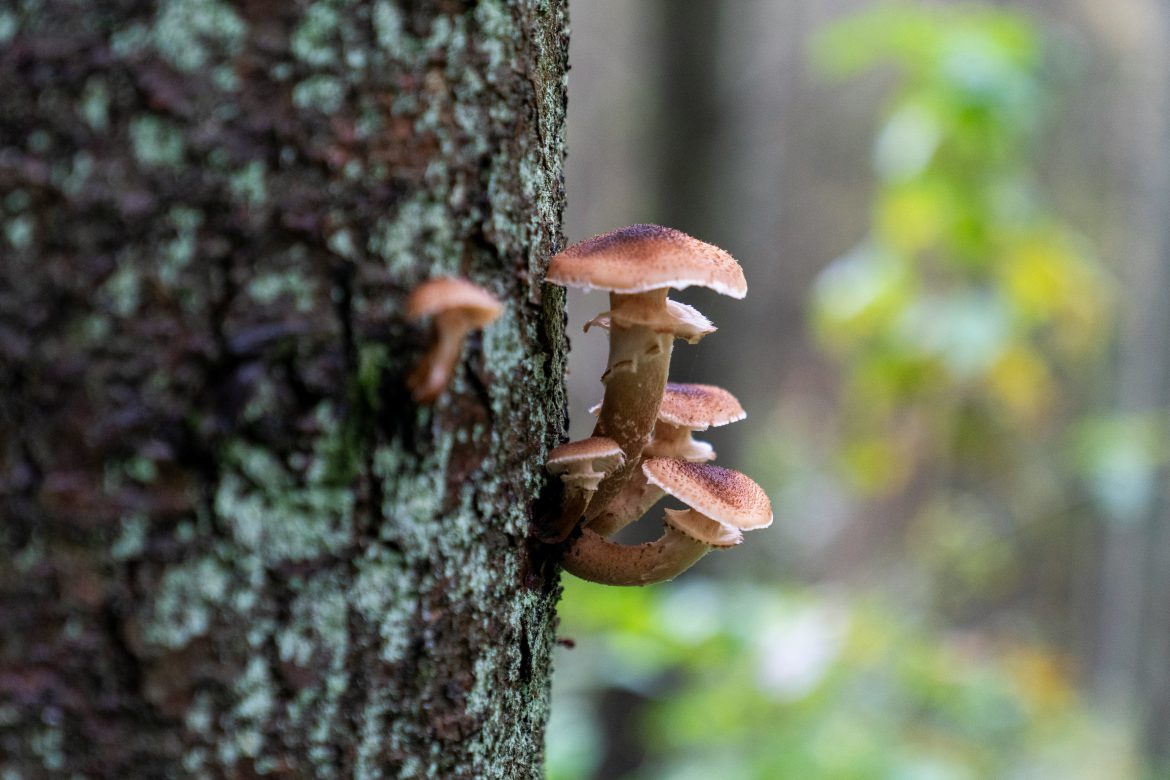The emergence of mushrooms can often add a whimsical touch to your garden. Yet, beneath their charming facade, mushrooms on trees can sometimes signify trouble.
While mushrooms sprouting in lawns might signal healthy soil teeming with organic richness, their appearance at the base of trees may narrate a different story altogether.
Understanding which mushrooms signal bad news
Before we delve into the nuances, let’s decipher the language of these fungal inhabitants. Not all mushrooms are harbingers of doom; some merely coexist with vibrant roots but certain varieties, like the honey fungus, can become a problem.
Picture clusters of yellow-brown mushrooms gathering around a tree’s roots like a hug gone wrong—that’s what honey fungus looks like. These mushrooms have flat tops and smell sweet, but don’t let that fool you. They’re not friendly. Honey fungus loves oak trees, but it’s happy to attack birch, hedges, or fruit trees too.
The danger isn’t just how they look; it’s what they do. Honey fungus weakens a tree’s strength. It makes leaves fall too soon and quietly eats away at the roots, which is ultimately bad news for the tree’s lifespan.

Image credit: Unsplash
Understanding the signs
As passionate caretakers of our trees, it’s important to pay attention to the messages mushrooms send us. While some mushrooms simply break down old wood, others tell us when a tree is sick.
If you see lots of mushrooms growing around your tree’s base, it could mean trouble. Maybe the tree is silently fighting decay, or maybe a dangerous honey fungus is creeping in.
When faced with a situation like this, it’s important to act fast and decide how to protect your trees. If honey fungus grabs hold of a tree’s roots, sometimes the only choice is to remove the tree.
Prevention is our best weapon against plant diseases. As garden keepers, we need to watch out for overwatering, which helps honey fungus grow.
Nature also gives us hints if we’re paying attention. Wet soil or pale leaves can tell us a lot. By taking care of our tree roots and helping them stay strong, it contributes to keeping garden trees healthy.
ALSO SEE:
Feature image: Unsplash
Originally published in Garden&Home Magazine.

